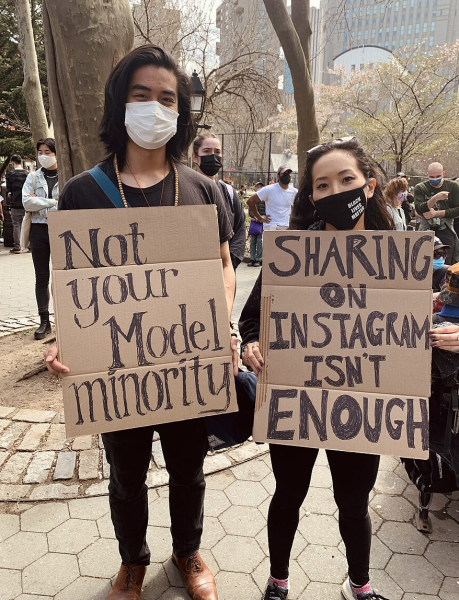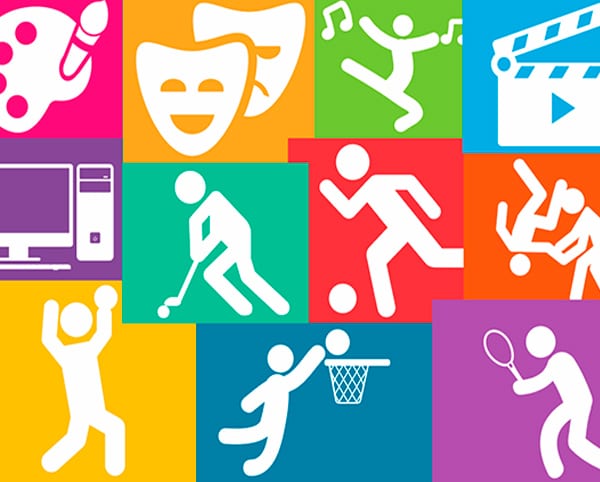Diets don’t work
Stop looking at the scale and start re-evaluating your relationship with food
May 26, 2021
Every year, millions of Americans go on diets. Some popular ones include KETO, Weight Watchers and juice cleanses. Out of dozens of diets, none of them are worth it. Unless told to do so for medical reasons, people should not be on diets. After all, a majority of diets fail. The National Eating Disorder Association states, “95% of all dieters will regain their lost weight in 1-5 years.”
From a scientific standpoint, fad diets tend to be ineffective. Despite the statistics, people try to fit into society standards by beginning a diet. These societal standards change every decade. With each new body type, there are new fad diets to accompany them.
Emily Cardonick, a sophomore at RV, describes dieting’s influence. “I can see the impacts that diet culture is having on my close friends, and I can slowly see them becoming shells of themselves, simply because society told them that they weren’t enough as they are.”
According to Anna Guerdjikova, a Director for Administrative Services in the Harold C. Schott Foundation Eating Disorders Program, the impact of the “Biggest Loser” weight loss competition has a negative impact on the weight of its participants. “Six years after the show, only one of the 14 contestants weighed less than they did after the competition; five contestants regained almost all of or more than the weight they lost, but despite the weight gain, their metabolic rates stayed low, with a mean of 1,903 +/- 466 kcal/day. Proportional to their individual weights the contestants were burning a mean of ~500 fewer kilocalories a day than would be expected of people their sizes leading to steady weight gain over the years.”
In the weight loss world, there are a lot of misperceptions about how to lose weight. A lot of people aim to lose weight as fast as possible, but doing so is actually less likely to be sustainable. Losing weight too quickly will slow the metabolic rate so that it is harder to keep weight off. Although it seems counterintuitive, eating more can benefit weight loss more in the long run. By consuming a healthy amount of food, people can improve their basal metabolic rate.
Basal metabolic rate is the number of calories someone burns in a day resting. Even standing up burns more calories throughout the day. A lot of apps encourage dieters to eat fewer calories than their basal metabolic rate to lose weight. In reality, this is harmful and will hurt their metabolism. According to Heather Klug, a registered dietician, “When you restrict calories below your resting metabolic rate (RMR) this slows your RMR in as little as two weeks. Your body goes into energy-and-fat conserving mode (also known as starvation mode). Do this for too long and you’ll lose precious muscle, further lowering your metabolism.”
Calories are what people need to function. When people undereat as part of a low-calorie diet, they are depleting their body’s energy. The same thing goes for eating carbohydrates. Many individuals with disordered eating tendencies have “fear foods,” oftentimes carbs, that they avoid because they think these foods will negatively impact their weight. In reality, all foods will fit into a healthy diet. Carbohydrates, and other types of foods, are crucial for the body’s energy source.
The National Eating Disorder Association offers insight to why diets hurt people mentally. Not only are girls who diet frequently twelve times more likely to binge, one third of girls report dieting regardless of their weight. Girls start dieting as young as elementary school. Dieting increases the risk of developing an eating disorder and is considered to be a predictor of one.
As people begin to restrict their diet, it can develop into anorexia. These restrictions can also lead to binge eating disorder. Jacyln a nutritionist with the website holisticfoodie.com, explains, “On a purely scientific level, when it comes to hunger, our bodies actually cannot tell the difference between when we are starving ourselves because of actual famine or restricting. What happens is that our bodies will actually not only hold on to weight, but they will send signals to our brain to eat and eat quickly, i.e. a binge and the binge restrict cycle begins. Our bodies will want to end the hunger and restriction as quickly as possible and we will react by eating more foods than we need to and we won’t be reaching for a salad.” People who do not have enough food or water are going to consume a lot quickly when they first get a chance; yet, the guilt people feel is not for water. It’s for food.
A diet in which certain food groups are not allowed creates a feeling of restriction in your brain. If you are undereating from the restriction, there is going to be the unpleasant physical feeling that comes from being hungry. People can also be mentally hungry if they are only allowing themselves to eat what they consider to be “safe foods.” People that partake in the restrict and binge cycle may have an increased appetite while maintaining a lower metabolic rate. They also may feel fatigued, loss of muscle mass, increased risk of infertility, and more.
In seventh grade, I made lists of foods I would try not to eat to be “healthier” and lose weight. For example, I didn’t want to eat crackers among other foods, while also undereating. The only thing that resulted from that was eventually I had to cave and eat it. When I did this, I would eat the entire sleeve. I was stuck in a cycle of restricting and then guilt for what I thought was “bingeing” (when in reality I still was not eating enough). Diets are not meant to be forever, but doing them at all is the beginning of a cycle of restriction. You can’t not eat crackers forever, so when you do, you feel stuck from trying to hold onto the self control you want, but doing so only makes it harder to maintain any. You can’t gain more control by trying to control yourself.
There are better solutions than dieting to lose weight. People think that dieting is about self control and discipline, but there are so many mental components at play. People go on diets to lose weight, but most of the time they have not been told by a doctor they need to. The diet is not for their health; it’s to fit into society standards.
Alan Mozes, a health reporter for webmd.com, states, “People who are clinically underweight face an even higher risk for dying than obese individuals, the study shows.” Being underweight can be unhealthier than being overweight, but thinness continues to be society’s goal.
Anna Guerdjikova, from the Linder Center of Hope, shows the potential negative impact of being underweight as a result of dieting and eating disorders. “Weight fluctuations have been related to increased risk of development of cardiovascular disease, Type 2 diabetes and high blood pressure.” Going on a diet to lose weight to be “healthy” isn’t healthy if it just results in other diseases. Weight should not have so much power on a person that they damage themselves, but diets only encourage this.
Interestingly enough, mental health can be responsible for why people are overweight. It can also be responsible for people’s obsession with weight and trying to lose it. Rather than focusing on the piece of plastic that gives you a number, focus on how you feel. When people try to lose weight without considering other factors, they’re not thinking about how much muscle mass they have, their happiness or their overall health. If someone wants to have a healthy relationship with food, that is never going to come from a cycle of restriction. If someone is struggling with weight from mental health problems, the solution is going to be in someone’s mentality, not their weight.
Diets are not the answer to curing your relationship with food. The first step is to work on getting rid of harmful thoughts about food. If you’ve been dealing with the negative thoughts, it will be difficult to challenge them at first. However, it is important to learn that you should not be avoiding food or waiting to eat if you are hungry. Your body is made to take care of you, so listen to it. Hunger cues are there for a reason.
Don’t avoid certain foods or food groups; it just leads to an obsession with them and potential cravings. All foods can fit into a healthy relationship with food. There are no good or bad foods. All foods provide energy and are part of your fuel system, even if they have different nutritional values. Establishing moral values with food is toxic and will make it harder for you to enjoy foods. If you’re having cheat days, you’re associating the cheat foods as bad. It is better to balance different foods throughout your week and eat with balance in mind. Fad diets often don’t give you the proper nutrients you need for your health.
More important than what you eat is what you think. You should not feel guilt or shame about what you eat. It is necessary to push past the black and white thinking patterns about food that diets promote. Instead, realize that you can eat what you want to. When you feel out of control with food, tell yourself you do not need to have control. Let yourself have what you want and what you have been restricting on, and your brain will stop obsessing over it. Let yourself consume different macronutrients, eat your fear foods, and most of all, honor your hunger. This is a lot easier said than done, so support systems are crucial and prevent people who press toxic diet mentalities on you to do so.
“In addition, there are factors other than diet that can have a big impact on weight,” said Harvard Health Blog writer Robert Shmerling. “For example, everyday physical activity, regular exercise, and sleep are important in helping to maintain a healthy weight.” While weight should not be the focus, to move past a food obsession, it helps to realize that food is not everything. Sleep is as important. Food is the thing that you digest for fuel and then excrete out of your body. Don’t give food or the scale more power than they deserve.
A method that has helped many people, including myself, to find a way to have a healthy relationship with food and move away from dieting is intuitive eating. CHAW, a center for health advocacy and wellness, gives tips on how to incorporate intuitive eating into your life. In intuitive eating, you learn to honor your hunger while also respecting your fullness. At first after restriction, someone might need to eat a little bit past fullness to no longer feel mentally hungry. However, the goal is eventually to be able to eat what you want and need without obsessive thoughts about food and diets. If you are hungry or craving food, you eat. If you eat more than you were hungry for, you forgive yourself because food is a fuel source, not something to feel guilty about.
Mindfully eating rather than sitting in front of a television can help intuitive eating to be more affected and prevent distorted hunger cues. Think while you’re eating about your cravings, if you are actively hungry, and what you want. Again, this takes time. After someone has developed disordered eating tendencies, it is going to take time to learn to feel hungry again. Sometimes, hunger cues aren’t physical. They are the mental thoughts of thinking about food too. Let yourself listen to these mental hunger cues and give yourself permission to eat.
A majority of diets fail and there’s a reason: they are teaching you to go against bodily instincts and to obsess over food rather. By rejecting diet culture, you can allow yourself to learn to have a healthy relationship with food. If you are a dieter who is struggling to recover, remember that it takes time and that is okay. Progress isn’t linear.












